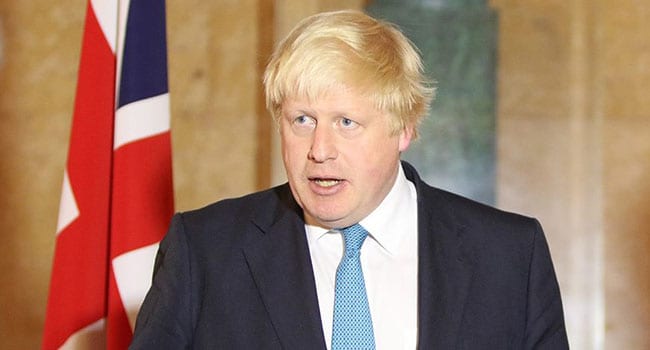 There are moments in our world that defy logic and understanding. Quirks of fate that make little to no sense. Positive and negative experiences that often seem out of place in societies based on relative order and precision.
There are moments in our world that defy logic and understanding. Quirks of fate that make little to no sense. Positive and negative experiences that often seem out of place in societies based on relative order and precision.
That’s why United Kingdom Prime Minister Boris Johnson’s recovery from COVID-19 should be viewed as nothing short of miraculous.
Johnson, like most other world leaders, didn’t react to the pandemic as quickly as he should have. His country’s response to social distancing, shutting down schools and businesses, and ordering a lockdown was among the very last in Europe.
When Johnson closed the restaurants, pubs and free houses on March 20, he had this to say about these draconian measures: “We’re taking away the ancient, inalienable right of free-born people of the United Kingdom to go the pub, and I can understand how people feel about that.”
| RELATED CONTENT |
| Is it curtains for Boris Johnson? By Pat Murphy |
| Boris Johnson: the man who got Brexit done By Pat Murphy |
| Boris Johnson is a consequential politician By Pat Murphy |
Fair enough. It goes against the inherent sensibilities of modern conservatives to increase the state’s role, forcibly close down economies and limit free movement. But there was no choice in the matter – and the sooner it was done, the better.
Things began to take an unexpected turn within days.
On March 27, Johnson became the first world leader to test positive for COVID-19. He immediately went into self-isolation, managing the Conservative government’s day-to-day affairs from his official residence at 10 Downing Street.
The PM made infrequent appearances on social media. He briefly clapped outside with others on one occasion during a nightly recognition of public sector and National Health Service (NHS) workers.
Still, he clearly looked weak and pale. Some people have displayed no COVID-19 symptoms, while others have had bad coughs, fevers and runny noses. Most people initially assumed Johnson was in the latter category.
When his symptoms persisted, he was admitted to St. Thomas’ Hospital in London on April 5 for further testing. His condition worsened the next day and he was moved into the intensive care unit.
Johnson was clearly battling for his life.
People were in shock.
Carrie Symonds, his pregnant fiancée who also experienced COVID-19 symptoms, was unable to visit him. Friends and foes alike sent their best wishes. First Secretary of State and Foreign Affairs Dominic Raab was deputized to run the government during Johnson’s incapacitation.
The world watched and waited.
Johnson reportedly required oxygen in ICU but was never put on a ventilator. His health gradually improved. He was moved back into a regular ward on April 9 and discharged three days later.
In his first video message to the nation on, appropriately enough, Easter Sunday, Johnson spoke about his harrowing experience. “I have today left hospital after a week in which the NHS has saved my life, no question,” he said at the beginning. Hr acknowledged that things “could have gone either way” in the ICU.
He praised the doctors, nurses and others who “kept putting themselves in harm’s way, kept risking this deadly virus.” Two nurses in particular, Jenny from New Zealand and Luis from Portugal, stayed at his bedside during the most crucial 48 hours.
“It is thanks to that courage, that devotion, that duty and that love,” he said, “that our NHS has been unbeatable.”
Yes, other people in the U.K. and elsewhere have been admitted to intensive care as they struggled with COVID-19. Some survived this horrible ordeal. Others haven’t.
Johnson came perilously close to being part of the latter group. It would have been disastrous for a leader of a major country to suffer this fate. Fortunately, he overcame this deadly virus – aided by a talented team of medical professionals.
You don’t have to be a religious person (and I’m not) to understand that miracles occasionally happen. We’ve just seen one of them.
Michael Taube, a Troy Media syndicated columnist and Washington Times contributor, was a speechwriter for former prime minister Stephen Harper. He holds a master’s degree in comparative politics from the London School of Economics.
The views, opinions and positions expressed by columnists and contributors are the author’s alone. They do not inherently or expressly reflect the views, opinions and/or positions of our publication.

